What Is The Best Material That Absorbs Sound?
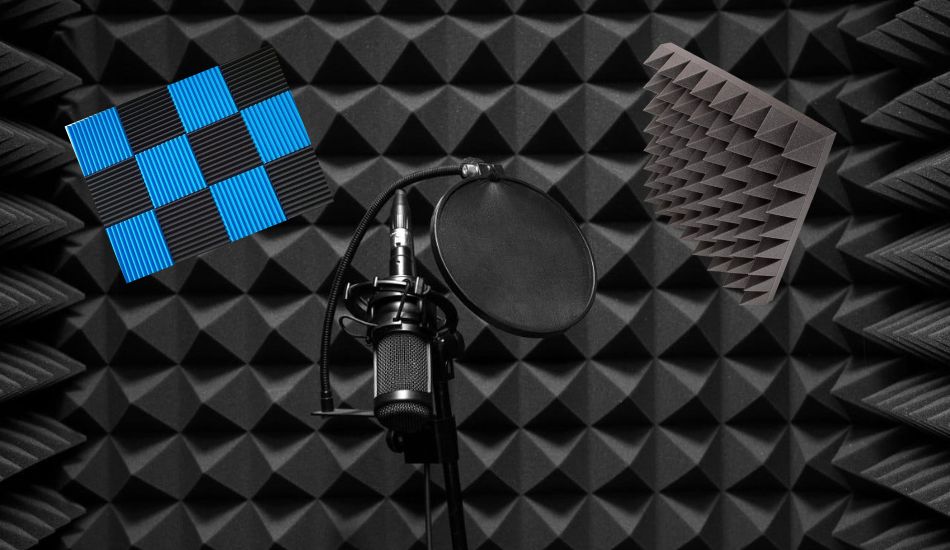
Having good sound insulation is extremely important today. But it’s equally important to be mindful of our impact on what materials we use to soundproof our home. Fortunately, there’s a way to achieve both. There are soundproof solutions that offer eco-friendly soundproofing options and that give good results at the same time. In this article, we will explore some of the most effective soundproofing materials that you can find on the market. So, let’s start!
What is the best material that absorbs sound? Cotton is considered an excellent acoustic sound-absorbing material because of its dense and pacable nature, where it can contain sound effectively. Besides cotton, bamboo also offers great sound-absorbing abilities due to its low density, preventing sound from reflecting.
What Materials Absorb Sound Better?
Before we start, we have to clarify some things first. Many people confuse the terms “sound absorption” and “soundproofing“. However, these two terms are quite different regarding controlling and reducing unwanted noise. Knowing that makes it easier to understand the best materials that absorb sound.
Cotton, bamboo, coconut husks, acoustic foam, and mineral wool are materials that absorb sound much better than other alternatives on the market.
Soundproofing materials prevent sound from transmitting in or out of a particular space. Also, these materials would mitigate noise from adjacent rooms. On the other hand, sound-absorbing materials cannot completely block sound from entering or exiting the space.
While soundproofing materials are designed to prevent sound transmission, sound-absorbing materials offer a different solution. By reducing echoes in a room, they help to enhance the overall acoustics of the space. Because of that, many musicians choose to install sound-absorbing materials in their studios.
Related Article: How To Soundproof A Bedroom Wall Cheap? Explained
Therefore, it’s essential to understand the key differences between soundproofing and sound-absorbing materials. Soundproofing materials are typically characterized by their density and weight, which helps to block sound effectively. On the other hand, sound absorbers are often lighter, soft, porous, and fluffy.
To understand it even better, we have put together a table with the materials that are most often used for sound absorption:
| Material | Sound Absorption Rating | Advantages | Disadvantages |
|---|---|---|---|
| 1. Cotton | High | Inexpensive and Soft | Not as durable as other materials |
| 2. Bamboo | High | Eco-friendly and Durable | More expensive than cotton |
| 3. Coconut Husks | High | Lightweight and Eco-friendly | The quantity required is more than cotton to achieve the desired level of soundproofing |
| 4. Acoustic Foam | High | Highly effective in reducing echo and noise | Not environmentally friendly |
| 5. Mineral Wool | High | Fire-resistant and good at reducing echoes | Difficult to install and not eco-friendly |
Best Home Materials That Absorb Sound
Although many sound-absorbing materials are on the market, we will concentrate on those in your home. This will save you money and time. So, let’s get started:
1. Soft Furniture

Selecting the right furniture for your room is one of the simplest and most cost-effective ways that you can use to absorb sound. As you may know, I often suggest rearranging furniture as a final step in my soundproofing guides.
Properly placing a sofa in the room can significantly reduce the noise level depending on the room you are staying in. The great thing about this approach is that it requires no additional purchases and leverages the items you already own. This makes it one of the most affordable soundproofing methods I’ve employed.
It’s worth noting that not all types of furniture are capable of absorbing sound. For instance, some people assume that plush and cushioned sofas absorb noise effectively. That is indeed the case, as the foam filling of these furnishings is well-suited for the task.
Related Article: 8 Best Soundproofing Fabrics
2. Acoustic Window Film
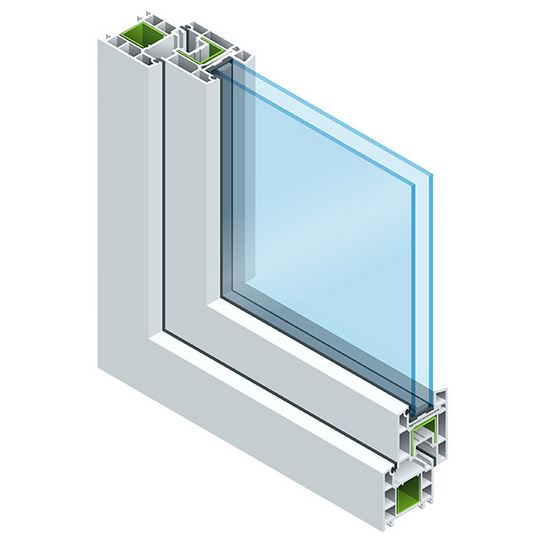
When we talk about sound transmission through windows, it’s important to consider the properties of glass as a material. Glass is known to be an excellent conductor of sound, which can lead to unwanted echoing or vibrating noises. I wasn’t convinced that vinyl film was a viable solution for soundproofing windows for a long time, but I’ve since changed my tune.
Most vinyl films used for window soundproofing are indeed quite thin. The specific properties can vary greatly between different brands and models. Nonetheless, despite its limited thickness, the vinyl layer can effectively silence the impact and vibrations of the glass.
Related Article: Is There a Device That Can Block Sound?
3. Sound Absorbing Curtains
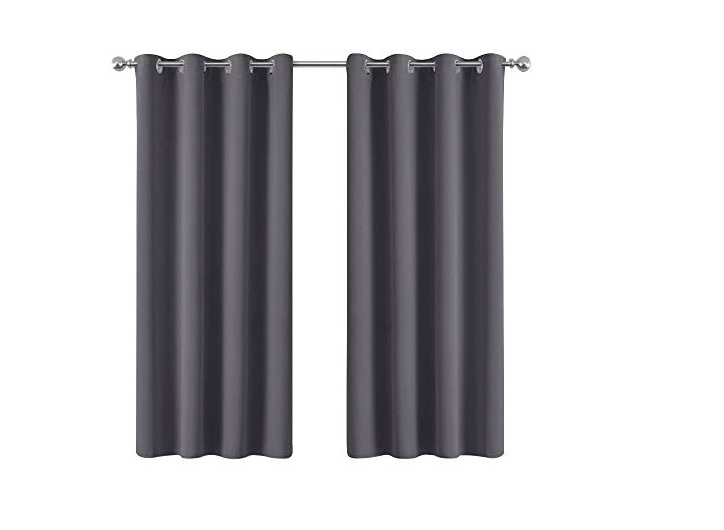
Sound-absorbing curtains, although highly effective, have a significant drawback. Most of these curtains are fabricated from materials that have different colors on each side. Some even consist of entirely distinct materials on the front and back. They employ a triple weave technology which consists of three fabric layers, but the rear layer is often a different color than the front.
> Buy Soundproof Curtains HERE <
Sound-absorbing curtains offer a solution to the asymmetrical appearance of regular soundproof curtains. Traditional soundproof curtains are intended to be placed on windows and do not have to be symmetrical, as only one side is visible to the room.
Natural Materials That Absorb Sound
Some of the best materials for absorbing sound come from nature. Soundproofing companies recognized this and implemented it in their products. A few examples of these organic sound-absorbing materials are:
Cotton
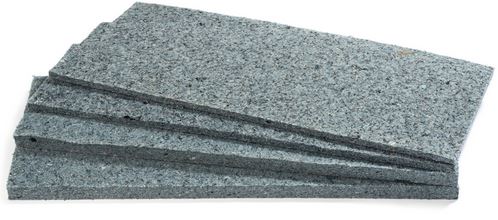
Cotton is a versatile sound-proofing material that offers multiple benefits. It’s not just absorbent material but also disperses and traps sound, making it a highly effective option. The natural fibers of cotton make it porous, creating numerous pathways for sound energy to be captured and contained.
Additionally, the cotton’s dense and packable nature allows it to be molded into sturdy sheets that can disperse and contain sound effectively. The great thing about cotton soundproofing materials is that they prevent sound from bouncing all over the room. Also, cotton will keep your room cool during summer and warm during winter days.
Bamboo
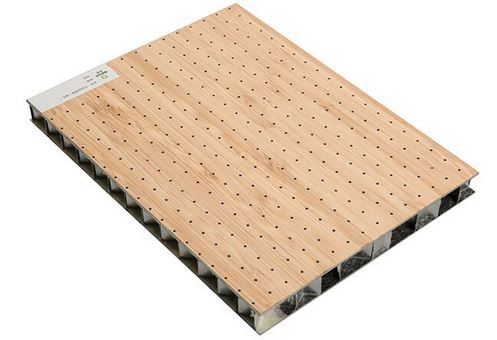
Bamboo, known for its softness, can also be useful in soundproofing. Due to its low density, bamboo can absorb and disperse sound waves, preventing sound from reflecting.
The porous nature of bamboo enhances its sound-absorbing properties, making it a popular choice among homeowners who create natural sound barriers by planting dense bamboo walls around their properties.
Related Article: Does Putting A Blanket Under A Door Reduce Sound?
Coconut Fibers
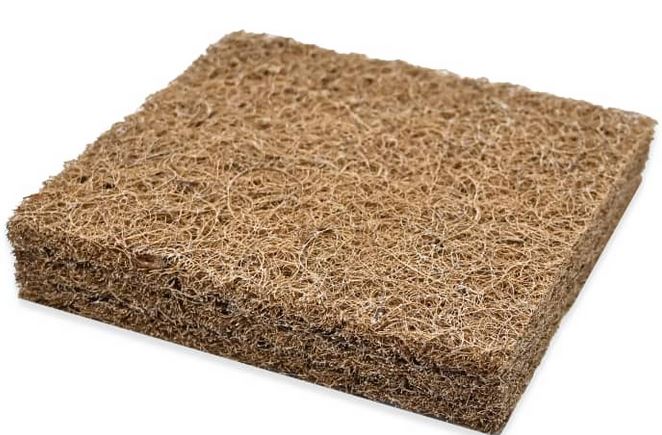
Coconut husks are a naturally occurring, porous, and fibrous material that can absorb sound. They have similar soundproofing characteristics to that of cotton and bamboo. Although lighter in weight than cotton, a larger quantity is required to achieve the desired level of soundproofing.
If you are still not convinced and want to learn more, then watch this YouTube video:
Related Article: 6 Best Soundproof Pads
Final Thoughts
Lastly, the best material for absorbing sound depends on several factors, such as the sound frequency, the type of surface it is being applied to, and the desired level of sound reduction. Cotton, bamboo, and coconut fibers are the most popular and effective materials for absorbing sound.
However, there is no one-size-fits-all solution, and it is important to evaluate your situation to determine the best material for your needs. Whether you want to reduce noise in your home, office, or recording studio, incorporating sound-absorbing materials is an effective way to enhance the acoustics and create a more peaceful environment. I hope that this article has helped you.
